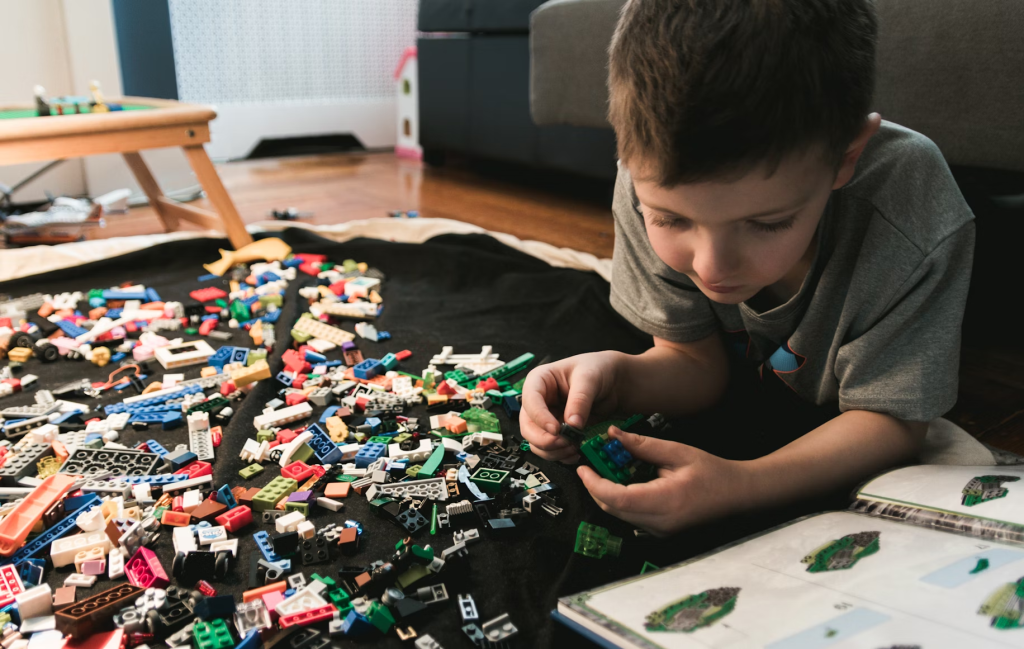Games are essential tools for supporting the development of autistic children. According to research, structured play activities can improve social and cognitive abilities in children with autism, making playtime a valuable opportunity for growth and exploration.
Parents of autistic children dedicate significant effort every day to ensure their children’s needs are met. They take on challenges ranging from managing therapy schedules to creating nurturing environments at home.
Amid these responsibilities, if they seek moments to unwind, they may want to explore the lighting roulette as a way to relax and recharge. This engaging and dynamic game offers a lighthearted break, providing parents with an enjoyable way to decompress while maintaining their resilience.
The Importance of Games in Autism Development
Games designed with autism in mind can address specific developmental challenges. They offer structure and predictability, which many autistic children find comforting.
Key Benefits of Games for Autistic Children
- Improved social skills: Playful activities provide opportunities to practice sharing, cooperating, and taking turns.
- Sensory integration: Sensory-focused pursuits help children explore and regulate their responses to different textures, sounds, and visuals.
- Enhanced focus: Structured play encourages concentration and patience.
- Cognitive growth: Problem-solving and strategy-based activities promote logical thinking and decision-making.
How to Choose the Right Games for Your Child
Selecting appropriate play options for an autistic child depends on their interests, strengths, and challenges. It’s important to opt for activities that match their developmental stage and sensory preferences. For example, children who are sensitive to noise might enjoy pastimes with soft sounds or visuals, while those who prefer tactile engagement might benefit from hands-on sensory play.
Examples of Great Games for Autistic Kids
- Sensory-based pursuits: Activities involving water beads, sand trays, or textured mats can provide a soothing experience.
- Turn-taking exercises: Simple board games like Snakes and Ladders or Memory Matching help teach patience and cooperation.
- Interactive technology: Apps and digital entertainment tailored to autism can teach communication and cognitive skills.
- Role-playing scenarios: Pretend play, such as acting out situations as a shopkeeper or customer, supports social interaction and imagination.
How Games Foster Specific Skills
Recreational activities not only entertain but also address critical developmental areas. Here’s how different types of play contribute to growth:
Problem-Solving and Cognitive Development
Puzzle games and matching activities encourage children to think critically, try new strategies, and experience the reward of solving challenges. These games are particularly useful for teaching concepts like cause-and-effect, patterns, and spatial reasoning.
Examples of Problem-Solving Games
- Jigsaw puzzles with simple, visually engaging pieces.
- Sorting and matching games using shapes, colors, or numbers.
- Construction toys like LEGO sets that encourage creativity and logical thinking.

Social Skills Through Interactive Play
Activities that involve multiple players or turn-taking are excellent for teaching cooperation and social interaction. These pursuits help children understand the importance of waiting for their turn, following rules, and celebrating others’ successes.
Examples of Social Skill-Building Games:
- Simple card games like Go Fish.
- Group activities like scavenger hunts, adapted for sensory sensitivities.
- Board games with predictable rules, such as Candy Land.
Tips for Incorporating Games Into Daily Routines
Integrating games into a child’s routine doesn’t have to be complicated. With some creativity and planning, parents can make playtime a consistent and beneficial part of the day.
- Set a schedule: Dedicate specific times for play to establish predictability, helping children feel secure and understand the routine while reducing anxiety and encouraging consistent engagement with the activities.
- Choose child-led pursuits: Let children select activities that interest them to encourage engagement and build autonomy, ensuring they feel involved and motivated while catering to their personal preferences and strengths.
- Adapt play as needed: Modify rules or simplify tasks to suit the child’s developmental stage, ensuring the activity remains enjoyable and appropriately challenging without overwhelming or frustrating the child.
- Encourage exploration: Introduce various recreational options to discover what works best for the child, helping them develop new interests and skills while expanding their comfort zones in a supportive environment.
- Celebrate achievements: Offer positive reinforcement to build confidence and enjoyment, emphasizing effort and progress to create a sense of accomplishment and motivate further participation in play-based learning.
Concluding Remarks
Play-based activities are a transformative tool for supporting the development of autistic children. By choosing pursuits that align with their interests and needs, parents can help their children grow socially, emotionally, and cognitively in a fun and supportive way.
